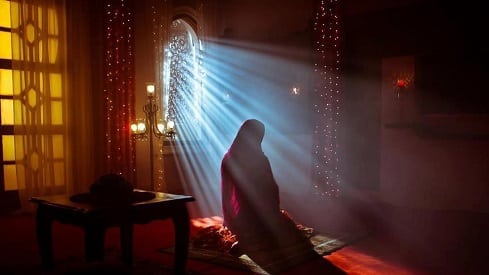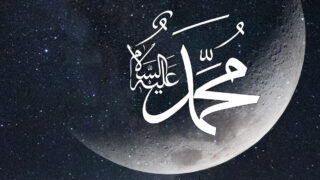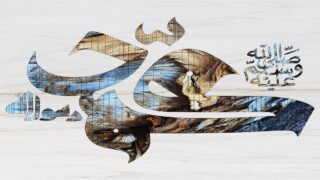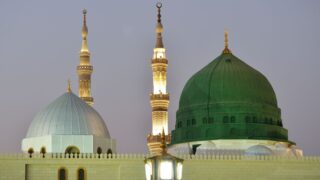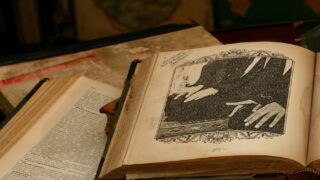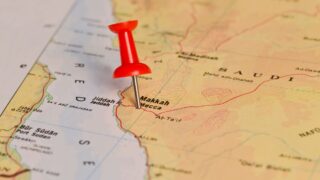The battle of Uhud was the first battle in Islam in which Muslim women participated. The heroism of women and the sincerity of their faith appeared in this battle. Their crucial role is to provide water for the thirsty and nurse the injured. Some of them stood against the strikes targeting the prophet (may the peace and blessing of Allah be upon him). Some of those women are; The mother of the believers, Aisha bint Abi Bakr Al-Siddiq, Umm Ammãrah, Hamna bint Jahsh Al-Asadi, Umm Salit, Umm Suleim, and some Ansar women. [Muslim (1809, 1810 and 1811)].
Tha`labah ibn Abi Malik, may God be pleased with him, said: Umar ibn al-Khattab distributed some garments amongst the women of Medina. One good garment remained, and one of those present with him said, “O chief of the believers! Give this garment to your wife, the (grand) daughter of Allah’s Messenger (peace be upon him).” They meant Um Kulthum, the daughter of Ali. Umar said, Um Salit has more right (to have it).” Um Salit was amongst those Ansari women who had given the pledge of allegiance to Allah’s Messenger (peace be upon him). Umar said, “She (i.e. Um Salit) used to carry the water skins for us on the day of Uhud.”. [Al-Bukhari (2881, 4071)].
In this battle, the women depicted a perfect scene of supporting the Messenger of God, may God bless him and grant him peace. Some great attitudes emerged from their patience for what had befallen them for the sake of Allah. These attitudes are documented in history books. Some of these attitudes are:
A – Safiyyah bint ‘Abdul-Muttalib, may God be pleased with her:
When Safiyyah heard of the martyrdom of her brother, Hamzah, in Uhud, she advanced to look at him; The polytheists mocked him, they struck his nose, patted his stomach, cut off his ears, and his penis, so the Messenger of God (may the peace and blessings of Allah be upon him) said to her son, Al-Zubayr bin Al-Awam: “Approach her, and take her back so she does not see what is in her brother”. He said to her: “My Mother! Allah’s Messenger is ordering you to go back!”. She replied, “Why should I go back since I have heard that my brother was mutilated in the cause of Allah? so how satisfied are we with that! I will bear it with patience and I hope to get the reward from Allah, if He so wills. Az-Zubayr came back to the Messenger of Allah and told him what she said. The Prophet then said, “Let her go.” She came to Hamzah and stood beside his corpse. She shed hot tears, sought Allah’s forgiveness and said: “to Allah we belong and to him we shall return”.
B – Hamna bint Jahsh, may God be pleased with her:
When the Messenger of God (may the peace and blessings of Allah be upon him) finished burying his companions, may God be pleased with them, he rode his horse, and the Muslims went out around him and returned to Medina. Hamna bint Jahsh met him, so the Messenger of God (may the peace and blessings of Allah be upon him) said to her: “O Humna! Seek reward upon your brother Abdullah.” She replied, “To Allah we belong and to him we shall return”. May Allah’s mercy be upon him and may Allah Forgive him” Then the Prophet (peace be upon him) said, “Seek reward upon your uncle, Hamzah” Again she replied as before. He then said, “O Hamnah! Seek reward upon your husband, Musab Ibn Umair.” Upon this, she cried out, “O’ battle!” The Prophet S.A.W replied, “The women’s bond with a man is greater than that of a man with a woman,” [Ibn Majah (1590), Al-Tabari in his Tarikh (2/532), Al-Bayhaqi in Ad-Daleel (3/301), and Ibn Hisham (3/104)].
Further, in the narration, the Prophet S.A.W. said, “Why you replied differently upon the news of Musab’s (R.A) martyrdom?” She replied, “Prophet of Allah! The acknowledgement of my orphaned children induced such an answer.” The Prophet prayed for her (may the peace and blessings of Allah be upon him), and for her son, that God Almighty would treat them well from the successors, so Ṭalḥa ibn ʿUbayd Allāh got married to her. She gave birth to Muhammad and Omran, and Muhammad bin Talha was the most connected one to her son.
C – The Dinarian woman, may God be pleased with her:
Saad bin Abi Waqas, may God be pleased with him, said: The Messenger of God (may the peace and blessing of Allah be upon him) passed by a woman from Banu Dinar. Her husband, her brother, and her father were injured with the Messenger of God (may the peace and blessing of Allah be upon him) in Uhud. When she was informed of their death, she said: What did the Messenger of God (may the peace and blessing of Allah be upon him) do? They said: “Good, O mother of so-and-so! He is, by the praise of God as you like”. She said: “Show me until I look at him”, and he was pointed to until she sees him. She said: Every calamity after you is simple. [Al-Waqidi in Al-Maghazi (1/292), The History of al-Tabari (2/533), Al-Bayhaqi in Al-Dalaleel (2/302), and Ibn Hisham (3/105)]. This is how faith does in the hearts of Muslims!
D – Umm Saad bin Muadh – Kabshah the daughter of Ubayd al-Khazraji, may God be pleased with her:
Umm Saad bin Muadh went out running towards the Messenger of God (may the peace and blessing of Allah be upon him) who was on his horse, and Saad bin Muadh was taking the horse’s grip. Saad said: “O Messenger of God! My mother!” Then the Messenger of God (may the peace and blessing of Allah be upon him) said: “Welcome to her”. So she got close to contemplating the Messenger of God, and said: “As for when I saw you in peace, The calamity became minor”. So the Messenger of God (may the peace and blessing of Allah be upon him) comforted her with Amr bin Muadh, her son, then said: “Oh Umm Saad! Bring good tidings, and bring good tidings to their families, that their deceased have all been accompanied in the paradise – they are twelve men – and have interceded for their families.” She said: “We are pleased, O Messenger of God! And who cries for them after this?!” Then she said: “Pray, O Messenger of God, to those who will succeed them.” The Messenger of God (may the peace and blessings of Allah be upon him) said: “O God, remove the sadness of their hearts, and comfort their misfortune, and provide the best of successor for those who succeeded them” [Maghazi al-Waqidi (1/315 – 316).
Ali As-Solãbi.

